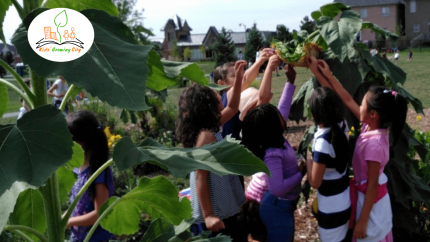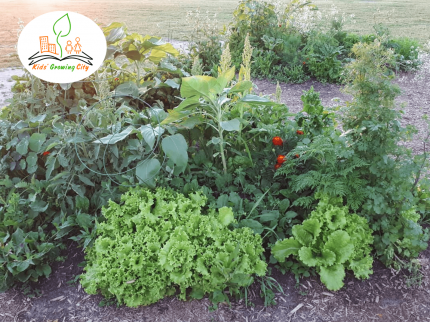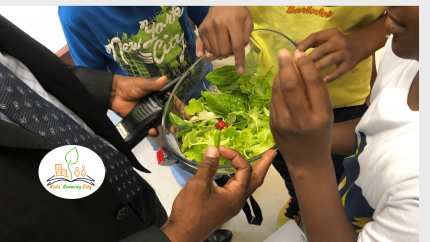Kids’ Growing City Masterclass: Nail Your School Garden Lesson Plans
Posted: February 24, 2021
Categories: Edible Education Network / Good Food Ideas for Kids / GoodFoodBites
 On March 3rd at 7:00 pm EST, Kids’ Growing City will be hosting a paid live Masterclass, Nail Your School Garden Lesson Plans ($49).
On March 3rd at 7:00 pm EST, Kids’ Growing City will be hosting a paid live Masterclass, Nail Your School Garden Lesson Plans ($49).
This Masterclass is best suited for grade 3 to 8 teachers to teach their curriculum in the garden. Note that a school garden can be as small as a few plastic pots in a sunny spot close to water access, or a huge raised-bed.
Recordings will be available for those who register but cannot attend the live class.
Check out more of Kids’ Growing City’s classes and opportunities including year-long online classes on the Kids’ Growing City website.
Leila Mireskandari, Founder and director of Kids’ Growing City and the creator of D.C.P. School Gardening Program, shares:
There is an ever-increasing demand to take students outside and teach the curriculum outdoors. And this demand has exploded due to COVID. As schools partially open again and the weather improves, what should we teach outside, and more importantly, how?
Kids’ Growing City has been helping elementary schools grow sustainable and successful school gardens in the Greater Toronto Area since 2013. We have cracked the code of school gardening and have developed a system, the D.C.P. school gardening program, that’s comprised of 3 foundational elements:
1) D for Design: A complete guide on what types of garden designs work well in schools and what should be avoided. This makes it really easy for teachers to design their gardens without having to become a designer, and completely avoid design mistakes and the need for experimentations that could lead to failures.
2) C for Curriculum: A series of experiential and cohesive lesson plans that not only thoroughly connect to Ontario elementary curriculum but together complete everything students need to know and do, so they can build a successful and sustainable school garden
3) P for planning: A complete planting schedule for schools (including which seeds to avoid) so that the garden grows well around school schedule, ties well with the curriculum, eliminates unnecessary chores, and ends up being diverse and plentiful. The plan also includes best practices for getting the garden watered during summer with absolutely no dependency on teachers or care-takers, so they can go to their summer vacations with a peace of mind and come back to a flourishing garden in the fall.
D.C.P. encapsulates almost 8 years of focus, research, and dedication.
Today, Kids’ Growing City has built many school gardens, trained hundreds of teachers, and taught thousands of students, directly and indirectly through its programs on the grounds and online. We are now ready to share this knowledge with educators who are eager to learn.
Learn more on the Kids’ Growing City website.
